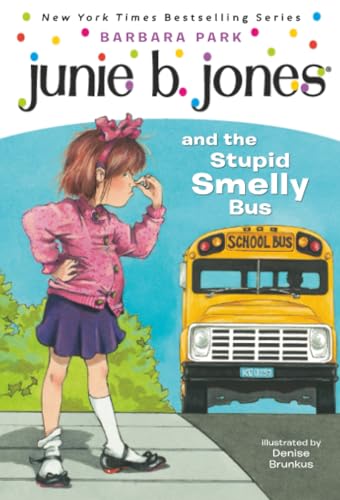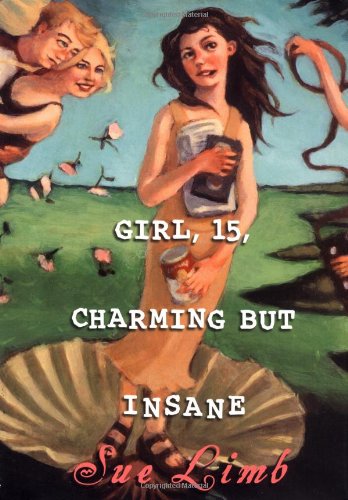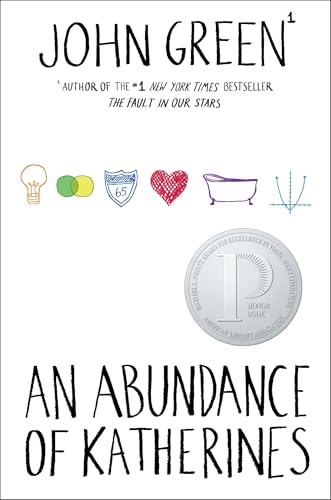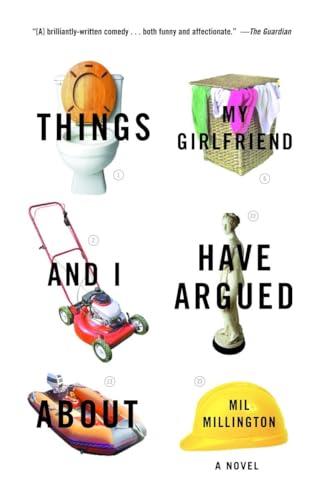I have one, teeny, tiny complaint about Fuse#8, and it isn’t even her fault (not really). She gets the books faster. I know that often they are the prepublished editions, but I suspect that sometimes they are just the regular books that her public library is getting sooner than mine. And since we gravitate toward the same types of books, she reviews them first. Waaaay first.
So long before me, in fact, that you have probably even forgotten that she reviewed them at all. Today, I add my two cents and as I link to Amazon, notice the reviews on the bottom of the pages. The very long, thorough reviews of each book. A little Bird told me that those reviews are worth a second look.
 Ruby Lu, Empress of Everything, by Lenore Look, finally made its way to my library, fortunately in time for summer reading. I like Ruby Lu. She’s like the Chinese-American Judy Moody — and so says Megan McDonald, author of the Judy Moody books.
Ruby Lu, Empress of Everything, by Lenore Look, finally made its way to my library, fortunately in time for summer reading. I like Ruby Lu. She’s like the Chinese-American Judy Moody — and so says Megan McDonald, author of the Judy Moody books. When her cousin Flying Duck comes to the United States from China, Ruby Lu is happy. She loves having her family from China, and Flying Duck has many useful tricks and skills. Among those skills is lip-reading, because Flying Duck is deaf. And in the perfect way kids interpret such things is this line from the book: “Having a cousin from China who was deaf was as good as having a cousin who had a third eye in the middle of her forehead.” At first everything is great, but the strain of having extra people around begins to show. There are arguments. There are bathroom conflicts. There are 911 calls. Ruby becomes her Smile Buddy at school, helping her adjust to the new school. Unfortunately, she helps her a little too much, by doing her cousin’s schoolwork, and ignoring her own. Both of them have to go to summer school. But there is still time for swimming lessons, dead mice, and lots of adventures. The book contains a glossary of important words and pictures of some of the sign language. An enjoyable read for the early elementary kids.
 Rosy Cole’s Memoir Explosion, by Sheila Greenwald, was a surprise in that I thought it was a early chapter book at first. The book was all right, but I wasn’t sure who it was for. It seems written for 3rd/4th graders, but Rosy is 11 and she has a crush on a boy — and has for two years... actually, now that is sounding more realistic than I thought. She needs to write about someone for class, but she can’t decide who. Then she has the brilliant idea of writing her own story. She goes through the outline for writing her own story, which shows that she needs “Talent, Tears, Turning Points; Romantic Relationships; Confronting Demons; Overcoming Obstacles; Family Feuds; Rising Above Failures; A Never-Before-Told-Secret; Reader Sympathy.” (Before the book is over, we will go through all of these steps with Rosy.) As she tries to convince her friends to write their memoirs, she ends up taking their stories and turning them into a book they would rather not read — especially as it isn’t so much true. Rosy writes the story of how she loses all her friends as way of atonement, and is forgiven.
Rosy Cole’s Memoir Explosion, by Sheila Greenwald, was a surprise in that I thought it was a early chapter book at first. The book was all right, but I wasn’t sure who it was for. It seems written for 3rd/4th graders, but Rosy is 11 and she has a crush on a boy — and has for two years... actually, now that is sounding more realistic than I thought. She needs to write about someone for class, but she can’t decide who. Then she has the brilliant idea of writing her own story. She goes through the outline for writing her own story, which shows that she needs “Talent, Tears, Turning Points; Romantic Relationships; Confronting Demons; Overcoming Obstacles; Family Feuds; Rising Above Failures; A Never-Before-Told-Secret; Reader Sympathy.” (Before the book is over, we will go through all of these steps with Rosy.) As she tries to convince her friends to write their memoirs, she ends up taking their stories and turning them into a book they would rather not read — especially as it isn’t so much true. Rosy writes the story of how she loses all her friends as way of atonement, and is forgiven.  A Horn for Louis, by Eric A. Kimmel, is a nice read, even if it makes me wonder how much is true. It is the story of Louis Armstrong as a young poor boy who played a tin horn for the junk man, so people would come out with their junk. He played so well on a cheap tin horn that everyone noticed. A gambler even throws Louis a dollar coin for his playing. But when his tin horn breaks, what is Louis going to do? The junk man’s kid finds Louis a real trumpet in the store, but of course there isn’t any money for it. My favorite part of this book was the relationship of Louis to the Jewish family running the junkyard. The integration of a black kid into their family dinners was something most white families wouldn’t do. Some of the Jewish traditions and words are noted, but not overly much.
A Horn for Louis, by Eric A. Kimmel, is a nice read, even if it makes me wonder how much is true. It is the story of Louis Armstrong as a young poor boy who played a tin horn for the junk man, so people would come out with their junk. He played so well on a cheap tin horn that everyone noticed. A gambler even throws Louis a dollar coin for his playing. But when his tin horn breaks, what is Louis going to do? The junk man’s kid finds Louis a real trumpet in the store, but of course there isn’t any money for it. My favorite part of this book was the relationship of Louis to the Jewish family running the junkyard. The integration of a black kid into their family dinners was something most white families wouldn’t do. Some of the Jewish traditions and words are noted, but not overly much. I knew that I liked Ian Whybrow, but I couldn’t remember why. Especially after reading The Unvisibles. This book is British. Very, very British. Hard to understand some of the expressions kind of British. Frankly, I just found it too much work. The basic story is that a boy, Oliver, finds an old magazine with instructions on becoming invisible. But the magazine is taken by a man who is cheating his father, and Oliver needs to find that magazine to get back to normal. He employs the help of Nicky, a boy who is invisible in his own way, in that he stays under the radar and draws no attention to himself. Oliver uses his invisibility to pull tricks on the teachers who don’t much like him. It is supposed to come off funny, but I sympathized with the teachers who didn’t seem to like him because Oliver was a troublemaker to begin with. However, given all the Britishness of this book, maybe I just didn’t understand. Now, I had thought that Fuse#8 had raved unequivocally about this book, but when I went back to her review, I realized that she also thought the book was very British — she just handled it better. Oh, and it was Ian Whybrow’s Little Wolf’s Book of Badness that I liked so much, I remember now.
I knew that I liked Ian Whybrow, but I couldn’t remember why. Especially after reading The Unvisibles. This book is British. Very, very British. Hard to understand some of the expressions kind of British. Frankly, I just found it too much work. The basic story is that a boy, Oliver, finds an old magazine with instructions on becoming invisible. But the magazine is taken by a man who is cheating his father, and Oliver needs to find that magazine to get back to normal. He employs the help of Nicky, a boy who is invisible in his own way, in that he stays under the radar and draws no attention to himself. Oliver uses his invisibility to pull tricks on the teachers who don’t much like him. It is supposed to come off funny, but I sympathized with the teachers who didn’t seem to like him because Oliver was a troublemaker to begin with. However, given all the Britishness of this book, maybe I just didn’t understand. Now, I had thought that Fuse#8 had raved unequivocally about this book, but when I went back to her review, I realized that she also thought the book was very British — she just handled it better. Oh, and it was Ian Whybrow’s Little Wolf’s Book of Badness that I liked so much, I remember now.And just as final proof that I am two steps behind Fuse#8, here are the notes I wrote on a new picture book that came into my library. Notes that I made, but didn’t format into an entry, before someone beat me to it. See if you recognize the book.
The boy invites the fish to come visit him someday. He puts the note in a bottle, and throws it into the sea. The next day there is a fish in his bathtub and two creepy catfish eating the neighbor’s lawn. The neighbor Sally blows up some blowfish for balloons while jellyfish swoop in to make peanut butter sandwiches. A whale flys overhead like a hot-air balloon. Fish invade everywhere. Chris writes them another note telling them they should live at home. WAPB.
The book? Dear Fish, by Chris Gall. The acronym, WAPB? Weird-Ass Picture Book.
























2 comments:
I don't mean to lead you astray like this. The fact of the matter is that almost none of the titles I review have been added to NYPL's collection as of yet. I work off of review copies and ARCs by and large. At this moment in time we STILL do not have circulating copies of probably 75% of the books I've reviewed in the past 2 months. Tis true!
Well, that's a relief. I mean, your library already gets all the cool authors. If you also got all the cool books first too, I don't know if I could stand it.
Post a Comment